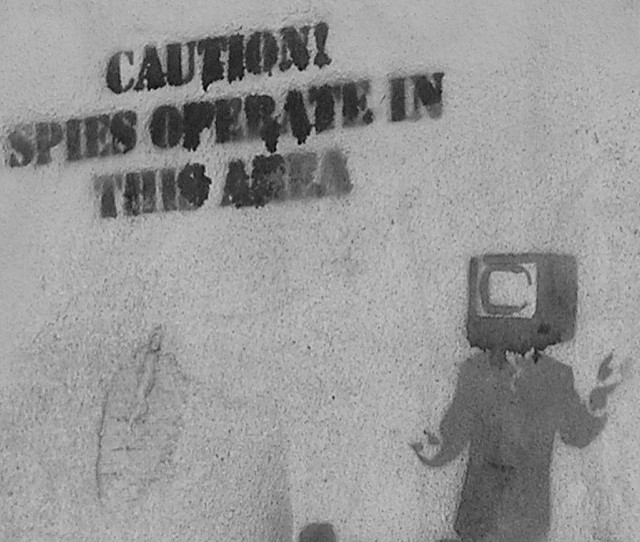Understanding the limits of intelligence
Posted By John Coyne on July 12, 2016 @ 11:00

Last week, Sir John Chilcot’s review [1] revealed that in 2003 the then British Prime Minister, Tony Blair, committed his country to the US-led invasion of Iraq based on ‘flawed intelligence and assessments’. After the report’s release, former Australian Prime Minister John Howard made a statement [2] that when he sent Australia to war with Iraq in 2003 ‘[T]here were errors in intelligence, but there was no lie’.
Neither the Chilcot review, nor Howard’s statement, address the intelligence tradecraft and policy factors that created the perceived intelligence flaws and errors.
The secretive nature of the intelligence profession means many are curious, but ill-informed, about its inner workings.
Over the last twenty or so years I’ve been regularly asked ‘what’s strategic intelligence analysis all about’. These days I have a well-rehearsed stock answer to the question.
Imagine for a moment that I give you 10,000 jigsaw puzzle pieces. Then imagine I tell you that an indeterminate number of these pieces belong to a single 1,000 piece jigsaw puzzle. Then imagine I ask you to tell me what the 1000 piece jigsaw puzzle picture is of: but I am not going to give you any more clues. No easy task. But it’s easy compared to the great intelligence game where the adversary is constantly trying to deny you the opportunity to collect.
In 2002, then United States Secretary of Defense Donald Rumsfeld, tried to address the Iraq weapons of mass destruction intelligence challenge with his now infamous ‘known knowns’ and ‘unknown unknowns’ comments [3]. But in doing so, Rumsfeld unintentionally demonstrated that he didn’t understand the uses and limitations of intelligence.
On rare occasions intelligence can be used as conclusive evidence that something’s a fact. In reality though, seldom does intelligence afford you a full picture: and often what’s collected appears contradictory. More often than not, the intelligence available to an analyst or decision maker is insufficient in quality and accuracy to conclusively prove anything.
In hindsight, intelligence is almost always flawed to some extent.
Good intelligence tradecraft involves a range of analytical techniques that ensure that the validity and reliability of different assessments or explanations are tested. In the end what is presented to the decision maker by intelligence agencies is neither hard evidence nor fact but a hypothesis with an associated assessment of its likely probability.
Chilcot’s review reveals that there were indeed two fundamental problems with the intelligence based decision making at the time of the Iraq war.
First and foremost, Chilcot reveals that competing theories about WMD intelligence weren’t always adequately tested. In Australia’s case, between September 2002 and March 2003 the Office of National Assessments inexplicably hardened its assessments [4] around the existence of Iraq WMD. It appears that during this period of time ONA started their analysis by accepting the assumption that Saddam had WMD as a fact.
Secondly, and just as importantly, decision-makers in London, Canberra and Washington didn’t seem to understand the uses and limitations of intelligence. Howard’s comments regarding errors in intelligence reveal that, to this day, he may not understand that intelligence is almost never fact. At worst the errors were in analysis, particularly that of the Office of National Assessments, as opposed to intelligence collection more broadly.
Even with flawed or inaccurate intelligence, decision-makers and staffers alike should’ve been contesting the validity and reliability of the assessments in the context of other information sources including United Nations inspection reports. Whether this did occur, and to what extent, remain a contested issue.
Before 2003, this had happened in Australian national security decision making on a number of important occasions. Neither the intelligence community nor Cabinet’s National Security Committee were strongly supportive of the Australian interventions in Bougainville, East Timor or the Solomon Islands. But in each case Howard and his staff contested the intelligence and military perspectives, after which the missions went ahead.
While some are calling for an Australian review, much of the needed work has already been undertaken in response to Phillip Flood’s 2004 inquiry into the Australian Intelligence Agencies.
In Australia we have a strong accountability framework to address organisational overreach within both the Australian Intelligence Community and law enforcement. The Inspector-General of Intelligence and Security reviews the activities of the Australian Intelligence Community.
Ultimately intelligence stands or falls on the integrity of its analytic processes. Ensuring that they are as robust as possible is important. But equally important is to ensure that the end users of intelligence understand the nature of the material they are presented with.
The next Australian government should consider expanding the role of the Inspector-General of Intelligence and Security to include, within its scope, the review of analytical tradecraft in practice. Such a change wouldn’t be an exercise in second guessing subject matter experts. Instead the IGIS would be focused on ensuring the presence of analytical contestability and the independence. This would require some change in mindset for the IGIS to expand its regulatory and legal oversight role to include a softer analytical probity function.
The next government should also explore how it educates its ministers, staffers and departmental policy officers on the uses and limitations of intelligence.
From television to movies, popular culture has painted intelligence as the omnipresent ‘magic bullet’ to all national security problems. Unfortunately this is more science fiction than fact.
If national security policy making errors are to be avoided, changes to intelligence contestability and education are needed more than ever.
Article printed from The Strategist: https://www.aspistrategist.org.au
URL to article: https://www.aspistrategist.org.au/understanding-limits-intelligence/
URLs in this post:
[1] review: http://www.google.com.au/url?sa=t&rct=j&q=&esrc=s&frm=1&source=web&cd=7&cad=rja&uact=8&sqi=2&ved=0ahUKEwj7scuEnejNAhVKGZQKHSrjCz4QFgg6MAY&url=http%3A%2F%2Fwww.iraqinquiry.org.uk%2F&usg=AFQjCNE-2PKi5l8OozoDO4ar0hl1U6r2Bw&bvm=bv.126130881,d.dGo
[2] statement: http://www.google.com.au/url?sa=t&rct=j&q=&esrc=s&frm=1&source=web&cd=1&cad=rja&uact=8&ved=0ahUKEwjo-aCenejNAhVFpZQKHbK_BgoQFggeMAA&url=http%3A%2F%2Fwww.abc.net.au%2Fnews%2F2016-07-07%2Fchilcot-inquiry-john-howard-responds%2F7577306&usg=AFQjCNHNbAt4MlJtHksuwPBUcPZs5sicoA&bvm=bv.126130881,d.dGo
[3] comments: https://www.google.com.au/url?sa=t&rct=j&q=&esrc=s&frm=1&source=web&cd=5&cad=rja&uact=8&ved=0ahUKEwjw0JG1nejNAhVCpZQKHar8DkYQtwIIMDAE&url=https%3A%2F%2Fwww.youtube.com%2Fwatch%3Fv%3DGiPe1OiKQuk&usg=AFQjCNEiuQ3Qi8w3_qAw9JoROIV7rsKRBw&bvm=bv.126130881,d.dGo
[4] inexplicably hardened its assessments: http://www.globalsecurity.org/intell/library/reports/2004/australia_iraq-wmd-intell_01mar04_chapter2.pdf
Click here to print.